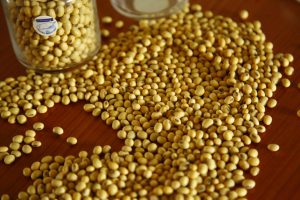The School of Agricultural Sciences is headed by Dr. John Baptist Tumuhairwe as Dean. It is one of the oldest units of Makerere University, dedicated to advancing agricultural development through training, knowledge generation and service delivery in Uganda and the region. We are proud to be one of the premier Agricultural Faculties in sub-Saharan Africa which has contributed to Human capacity development and Agricultural Technology Generation in East Africa. We have done this through promotion of staff talent, improved teaching and enhancement of research and outreach facilities.

The goal of the School is to ” Develop Intellectual capacity of students/scientists and equip them with the knowledge, practical skills and attitudes to positively influence sustainable agricultural development, nature conservation and judicious utilization of environmental resources “.
We offer both undergraduate and postgraduate programmes including Agriculture, Horticulture, Land Use and Management, Agricultural Rural Innovation and Agribusiness Management. Graduates from this School are Professionals; we therefore ensure that as students they participate in field internships where they get opportunity to apply theories, concepts and techniques in real-life situations. This also strengthens partnerships with stakeholders.
Through our strong field based research programmes backed by laboratory experiments, the School is generating technologies and identifying innovative approaches for improving agriculture to ensure positive changes in farmers’ livelihoods. The programmes identify needs and find solutions to agricultural, environmental, food and quality of life concerns. What makes our School unique is the fact that all research programs are linked to graduate training. Hence we are able to provide well trained Human Resources and well researched Technologies at the same time. No wonder, therefore, that the School is one of the leading units in terms of research output.

We conduct outreach activities to disseminate the solutions beyond the Makerere University campus. The Continuing Agricultural Education Centre has used responsive and proactive strategies to conduct non-degree training to strengthen capacities of practitioners in various agricultural disciplines.
Future developments of the School will be guided by strategic plan which is in place. We are grateful to the multiple organizations and individual development partners – from donors to farmers and including national and international training, research and outreach institutions – whose involvement with us has led to the accomplishment of the activities presented on this website. Please browse the site and experience the impacts of the School.

The School is proud of a total of 122 well trained academic – 72 are PhD holders, 45 are MSc. holders and 10 BSc holders. These continue to provide high quality training, research, consultancy services and collaborate with local and international organizations and Universities. They serve an average of 85 graduate and 1090 undergraduate students per year, who are distributed in three Departments. The Departments are Agricultural Production, Agribusiness and Natural Resource Economics, and Extension and Innovation Studies. Makerere University Agriculture Research Institute at Kabanyoro (MUARIK) has the research infrastructure for the School.
The School offers five undergraduate and twelve graduate degree programs. The undergraduate programs are BSc. Agriculture; BSc. Land Use and Management; Bachelor of Agribusiness Management; BSc. Horticulture; and Bachelor of Agricultural and Rural Innovations. The graduate degree programs include MSc. Agricultural Economics, MSc. Agricultural and Applied Economics; MSc. Agricultural Extension Education; MSc. Animal Science; MSc. Crop Science; MSc. Soil Science; MSc. Plant Breeding and Seed Systems; Msc. Integrated Watershed Management; and Master of Agribusiness Management. PhD Programs are also available in the above areas.

The School attracts substantial amount of funding for training, conducting research and outreach activities in different aspects of agricultural production economics and extension.

